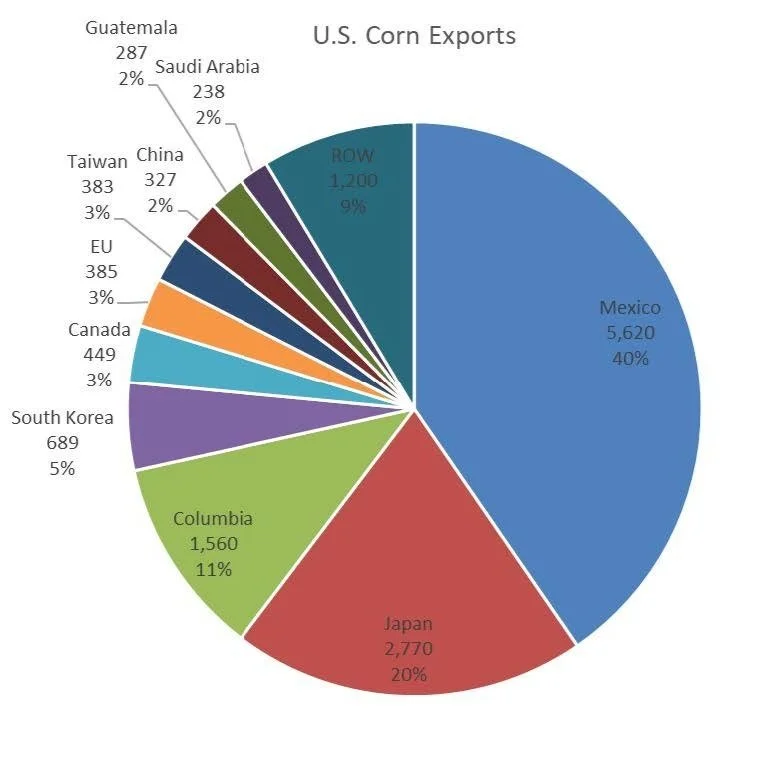Ouachita River Levels Continuing to Rise
The Ouachita River is continuing to rise and could be up to 45 feet by Wednesday, April 23, which is five feet above the flood stage according to the National Weather Service.
“The partners of Ouachita Parish are doing everything we can for weeks now to try and get ahead of this, and we’re going to continue to do everything we can to protect the citizens,” said Office of Homeland Security and Emergency Preparedness in Ouachita Parish Director Rodger McConnell.
Read More
Higgins, Carter Introduce Legislation to Combat Contaminated Seafood
Congressman Clay Higgins (R-LA) and Congressman Troy A. Carter, Sr. (D-LA) introduced H.R. 2715, the Destruction of Hazardous Imports Act, which grants the Food and Drug Administration (FDA) authority to destroy imported products that pose a significant public health concern.
This legislation would ensure that contaminated seafood imports don’t reach American consumers and cause harm. The bill grants the FDA additional authority to destroy food products that don’t pass initial inspection, which prevents importers from port shopping their products.
Read More
ArkLaTex Made: C6 Farms
For this edition of ArkLaTex Made, Rick Rowe features C6 Farms.
It provides customers with the highest quality nutrient dense pasture raised meats & eggs, raised sustainably and transparently from its farm in DeSoto Parish.
Read More
Agricultural Policy and Market Situation Newsletter: April 2025
Soybean contracts jumped 20 cents in midday trading on Wednesday, April 9th, joining other commodities in a sharp rebound, after President Donald Trump took to social media to again raise tariffs on the biggest buyer of U.S. soybeans- China. New Chinese tariffs (125%), set Wednesday, April 9th, more than double the cost for Chinese buyers to import U.S. soybeans, but that didn't stop soy-bean futures from climbing higher.
Read More
Insect Pest Survey In Several Louisiana Parishes
As the weather warms up, insects become more active. Over the past week, our team visited several parishes to check for insect pests on areas near to row crop fields. Some of these fields have already been planted with corn, while most are yet to be planted with soybean or cotton. We used sweep nets to collect insects in various vegetations including mixed grasses, white clovers, and crimson clovers at different sites in each
Read More
RFK Jr. Expected to Tout ‘MAHA’ Louisiana Bill
It looks like Robert F. Kennedy Jr.’s MAHA train will make a stop in Capitoland.
President Donald Trump’s health secretary is expected to visit Baton Rouge to promote Senate Bill 14, a bill inspired by Kennedy’s “Make America Healthy Again” movement.
Read More
From Plants to Animals, These Invasive Species are in Louisiana
In Louisiana, there are numerous invasive species, including both plants and animals, that can cause significant problems.
Invasive species in Louisiana often pose threats to agriculture, human health and the environment.
Read More
Fueling Louisiana's Sweet Success: How LSU's Research Keeps the Sugarcane Industry Thriving
Louisiana’s sugarcane industry isn’t just a part of the state’s history—it’s a driving force in its economy, generating roughly $4 billion annually and providing jobs across farms, research facilities, and raw sugar factories.
Sustaining this vital industry requires continuous innovation and a partnership between the LSU AgCenter, the USDA, and the American Sugarcane League plays a pivotal role.
Read More
Dr. Orlando F. McMeans to Receive the Career Achievement Award from the University of Illinois Urbana-Champaign
Orlando F. McMeans, Ph.D., Chancellor-Dean of the Southern University Ag Center and the College of Agricultural, Human and Environmental Sciences, has been named one of three 2025 University of Illinois Urbana-Champaign’s College of Agricultural, Consumer and Environmental Sciences (ACES) Career Achievement Award recipients.
The award is presented to alumni who have demonstrated exceptional professional achievements and/or made extraordinary humanitarian contributions resulting in meaningful or life-changing impacts on a significant population.
Read More
Louisiana Monthly Climate Summary: February 2025
February statewide rainfall averaged 5.24” for the month (preliminary estimate), less than 1.00” above the norm (p. 7) and falling within the middle third of all February totals over the past 130 years. While not far from the norm, February 2025 is the “wettest” February statewide since 2020. Monthly totals were generally above the mean, particularly in the northern and western parishes. By contrast, every station in the East Central Climate Division reported.
Read More
USDA WASDE Report Projects India Will Dethrone China As World’s Largest Rice Producer
Last week, in its monthly World Agriculture Supply and Demand Estimates Report, the U.S. Department of Agriculture estimates India is expected to surpass China as the largest rice producing nation in the world this marketing year (MY2024/25).
Over the last nine years, India has experienced an unprecedented back-to-back record-breaking rice harvest.
Read More
USDA Cancels Biden Era Climate Slush Fund, Reprioritizes Existing Funding to Farmers
U.S. Secretary of Agriculture Brooke Rollins announced the cancellation of the Partnerships for Climate-Smart Commodities (PCSC). Following a thorough line by line review of each of these Biden era partnerships, it became clear that the majority of these projects had sky-high administration fees which in many instances provided less than half of the federal funding directly to farmers.
Read More
Market Fundamentals Providing Better Footing For Cotton Prices
The market gave cotton a bit more footing this past week as price activity returned to trading fundamentals as opposed to the news media’s chaotic presentation of tariffs and the resulting Wall Street knee jerk activity.
Read More
Louisiana Crop Progress and Condition: April 2025
According to the National Agricultural Statistics Service in Louisiana, there were 6.2 days suitable for fieldwork for the week ending Sunday, April 13, 2025. Topsoil moisture supplies were 0 percent very short, 13 percent short, 67 percent adequate, and 20 percent surplus. Subsoil moisture supplies were 1 percent very short, 5 percent short, 77 percent adequate, and 17 percent surplus.
Read More
‘A Living Laboratory’: An Accidental Delta Taught Louisiana Scientists How to Rebuild Wetlands
Amid the rapid erosion of Louisiana's coast, something hopeful is happening where the Atchafalaya River meets the Gulf. A flow of sediment from a decades-old river diversion has accidentally given birth to new wetlands.
While that small delta is dwarfed by what’s washing away all around it, researchers have gained knowledge from Wax Lake Delta that could help save the rest of Louisiana’s coast and contribute to a better understanding of wetland science across the globe.
Read More















